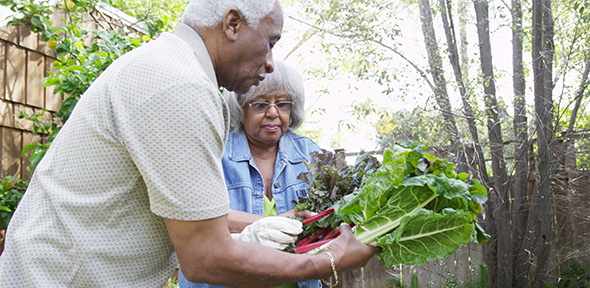
Harnessing opportunities and addressing challenges of an ageing world
Context
People are living longer than ever before and populations around the world are ageing rapidly. In the UK, people aged 65 or over are projected to make up almost a quarter of the population (17.4 million people) by 2043.
With longer life comes huge benefits for families, communities and societies. There are also widespread challenges associated with aging populations including increasing health conditions, such as dementia and heart disease, growing health inequalities, and changing housing, transport and social needs.
Action is needed to respond to demographic changes and to foster healthy ageing - enabling older people to live full, engaged lives in their chosen communities.
What is a life course perspective?
A life course perspective aims to understand the ageing process across the whole life course. It recognises that people’s health and wellbeing in older life is affected by multiple factors/wider determinants that influence them throughout life.
What we do
We are using a life course perspective to:
- Unpack the complex interplay of individual and collective determinants that affect health and wellbeing as people age
- Identify environments that foster and sustain ageing well across care and geographical settings
- Develop equitable interventions that benefit the whole population across the lifespan
Our multi-disciplinary approach spans biology, neuroscience and psychology, public and global health, ethics, law, sociology and policy.
Research projects
- Age-friendly environments: In 2006, the World Health Organisation responded to the converging trends of population ageing and urbanisation with its Age-Friendly Cities initiative. A rapid increase in programmes designed to create Age-Friendly Environments has ensued, along with a need for robust evaluation frameworks.
- Rehousing programmes for older social housing tenants in Hackney: how well do they work? Researchers from the Universities of Cambridge and Sheffield, in collaboration with Hackney Council, conducted a study of how well rehousing programmes for older social housing tenants in Hackney are working, and offer recommendations on how to improve rehousing experiences and achieve positive outcomes for tenants and communities.
-
The ‘oldest old’ towards the end of life: Focusing on 'older old' people approaching the end of their lives, this project combines qualitative and quantitative methods to examine end-of-life care issues from the perspective of very old people and their carers.
- ComPHAD: Community and Public Health Approaches to Dementia Research: Developing a sustainable platform to understand the primary care, public health and social care needs for dementia, with a focus on poorly represented communities.
- Maximising informal volunteering as a community resource to support the mental health and wellbeing of adults across the life course (NIHR SPHR Cambridge research project)
Key publications
A full list of publications is available here.
- A suite of evaluation resources for Dementia Friendly Communities: development and guidance for use Buckner S, Lafortune L, Darlington N, Dickinson A, Killett A, Mathie E, Mayrhofer A, Woodward M, Goodman C. Dementia. November 2022.
- The future longevity: Designing a synergistic approach for healthy ageing, sustainability and equity Mavrodaris A, Lafortune L, Brayne C. The Lancet Healthy Longevity. August 2022.
- Neighbourhood planning, rural ageing and public health policy in England Lee C, Parker G, Buckner S, Mattocks C, Barnes A, Jordan H, Oliver E, Cowan A, Lafortune L. Town Planning Review. May 2022.

